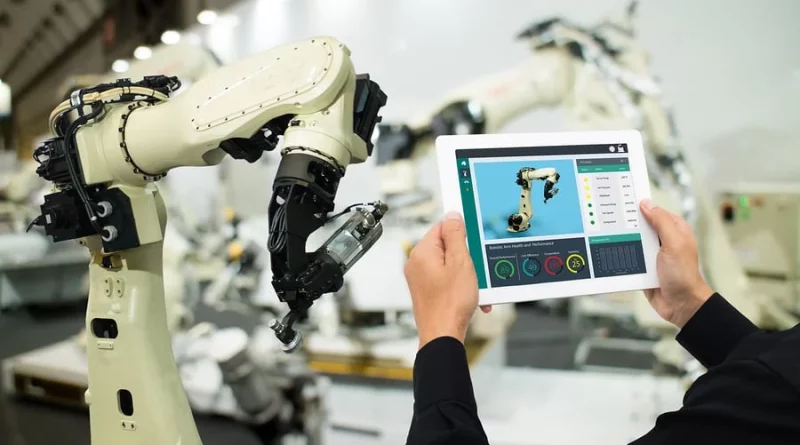engineering technology
Table of Contents
| Heading | Page |
|---|---|
| 1. Introduction | 2 |
| 2. The Role of Engineering in Technological Advancements | 2 |
| 3. Impact on Various Industries | 3 |
| 4. Engineering Innovations and Breakthroughs | 4 |
| 5. Engineering Ethics and Sustainability | 5 |
| 6. Challenges in Engineering Technology | 6 |
| 7. Future Trends in Engineering | 7 |
| 8. How to Pursue a Career in Engineering Technology | 8 |
| 9. Conclusion | 9 |
1. Introduction
Engineering technology is at the heart of modern society’s progress, revolutionizing industries and shaping the way we live, work, and interact with the world around us. This article delves into the dynamic landscape , highlighting its impact, innovations, challenges, and future prospects.
In today’s rapidly evolving world, it has become an integral part of our lives. This article delves into the myriad facets, its significance across various industries, its impact on society and the environment, future trends, challenges, education, career opportunities, and more.
It plays a pivotal role in driving progress and innovation. It combines the principles of engineering and technology to create practical solutions that enhance efficiency, productivity, and overall quality of life. From streamlining manufacturing processes to revolutionizing communication systems,it has touched every aspect of our lives.
The journey of engineering technology is a fascinating one. From the early days of rudimentary tools and machines, we have now entered an era of sophisticated and interconnected systems. The integration of digital technologies, artificial intelligence, and automation has paved the way for unprecedented advancements, enabling us to achieve tasks that were once deemed impossible.
It isn’t confined to a single sector; it permeates various industries. From healthcare and transportation to telecommunications and agriculture, it acts as a driving force, revolutionizing processes, and improving outcomes. For instance, in healthcare, precision instruments and medical devices have transformed diagnostics and treatment methodologies.
The impact of engineering technology on society and the environment is immense. While it has improved our lives in numerous ways, it has also posed challenges such as electronic waste and energy consumption. Striking a balance between technological advancement and sustainability remains a crucial consideration.
The future of engineering technology promises even greater innovations. Concepts like renewable energy, space exploration, and biotechnology are on the horizon. With a growing emphasis on eco-friendly solutions, it is poised to play a pivotal role in shaping a sustainable future.
With great power comes great responsibility. Engineering technology presents challenges related to data privacy, cybersecurity, and the potential for job displacement due to automation. Ethical considerations regarding the use of AI, automation, and biotechnology require careful examination and regulation.
To harness the potential, education and training play a crucial role. Academic institutions and training centers are equipping students with the skills and knowledge needed to excel in this rapidly changing landscape. Lifelong learning and adaptability are key in this field.
The realm offers a plethora of exciting career opportunities. From software development and systems engineering to research and development, individuals with a passion for innovation can find their niche. The demand for skilled professionals in this field is on the rise, creating a dynamic job market.
2. The Role of Engineering in Technological Advancements
Engineering and technology are inseparable partners that have propelled humanity into a new era. Engineers bridge the gap between scientific theories and practical applications, bringing concepts to life. From designing efficient structures to developing cutting-edge software, engineering enables us to harness the power of technology for various purposes.
3. Impact on Various Industries
The influence is ubiquitous across industries. In healthcare, medical devices and diagnostic tools have revolutionized patient care. The automotive sector has seen the rise of electric and autonomous vehicles, reducing carbon footprints and enhancing safety. Additionally, advancements in engineering have boosted telecommunications, renewable energy, and manufacturing, driving economic growth and global connectivity.
4. Engineering Innovations and Breakthroughs
Recent years have witnessed remarkable engineering innovations. The rise of 3D printing has transformed manufacturing processes, allowing for customized designs and rapid prototyping. The field of nanotechnology has opened doors to miniaturized devices with wide-ranging applications. Artificial intelligence and machine learning are being integrated into various systems, making them smarter and more adaptive.
5. Engineering Ethics and Sustainability
With great power comes great responsibility. Ethical considerations are crucial in engineering technology, as choices made during development can impact society and the environment. Engineers are now more focused than ever on sustainable practices, designing solutions that minimize resource consumption, pollution, and waste.
6. Challenges in Engineering Technology
The dynamic nature of engineering technology presents challenges that require innovative solutions. Cybersecurity threats have grown as technology becomes more integrated into daily life. The need for continuous education and skill development is paramount, given the rapid evolution of technology. Engineers also face the challenge of striking a balance between automation and preserving human involvement in critical processes.
7. Future Trends in Engineering
The future holds exciting possibilities for engineering technology. The Internet of Things (IoT) is set to connect devices, creating a seamless network of information exchange. Renewable energy technologies, such as solar and wind power, are expected to dominate energy production. Quantum computing promises to revolutionize computational power, enabling complex simulations and problem-solving.
8. How to Pursue a Career in Engineering Technology
Embarking on a career in engineering technology requires a strong educational foundation and a passion for innovation. A bachelor’s degree in engineering or a related field is essential, and many roles necessitate further specialization through master’s or doctoral programs. Internships, networking, and continuous learning play pivotal roles in career growth within this rapidly evolving field.
9. Conclusion
In conclusion, engineering technology is the driving force behind societal progress and innovation. Its impact spans across industries, influencing the way we live and work. As we navigate the challenges and embrace the future trends, the collaboration between human ingenuity and technology will continue to shape a brighter tomorrow.
FAQs
1. What is engineering technology?
Engineering technology is the application of scientific principles to create practical solutions that solve real-world problems across various industries.
2. How does engineering contribute to sustainability?
Engineers play a vital role in designing sustainable solutions that reduce environmental impact, conserve resources, and promote a greener future.
3. What are some emerging trends in engineering?
Emerging trends include the Internet of Things (IoT), renewable energy advancements, and the integration of artificial intelligence into various systems.
4. What education is needed for a career in engineering technology?
A bachelor’s degree in engineering or a related field is typically required, with further specialization possible through advanced degrees and continuous learning.
5. How can I stay updated with the latest engineering innovations?
Stay engaged through professional networks, industry conferences, online courses, and publications to remain informed about the latest developments in engineering technology.



